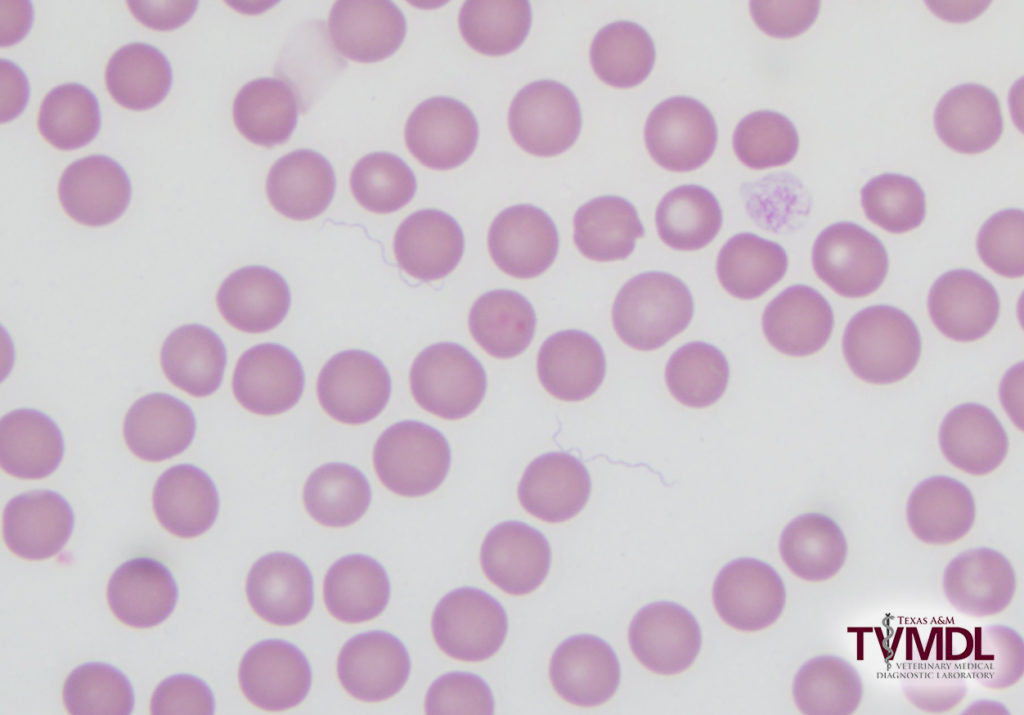Tick-borne disease in a dog with no known history of ticks
By Julie Piccione, DVM, MS, DACVP
With over 800,000 tests run annually, TVMDL encounters many challenging cases. Our case study series will highlight these interesting cases to increase awareness among veterinary and diagnostic communities.
An 8-year-old, female, spayed Yorkshire terrier from southcentral Texas presented to their veterinarian with lethargy, inappetence, and an acute onset of a “hunched over” posture. The dog had no clinical history of external parasites, including ticks. Whole blood and serum were submitted to the Texas A&M Veterinary Medical Diagnostic Laboratory (TVMDL) for complete blood count (CBC) and chemistry tests, respectively. The major clinicopathological changes detected by the laboratory included marked thrombocytopenia (48,000 platelets/µL) and occasional extracellular spirochete bacteria on blood smear examination (see image). The CBC findings were compatible with Tick-Borne Relapsing Fever, which was later confirmed with the TickPath Layerplex qPCR test at TVMDL.
In the state of Texas, Tick-Borne Relapsing Fever (TBRF) is caused by Borrelia turicatae, which is spread by Ornithodoros turicata, a soft-bodied tick. These ticks are nocturnal, feeding on their hosts briefly at night. Therefore, it is not uncommon for dogs diagnosed with TBRF to lack a clinical history of tick infestations. The infection can cause lethargy, inappetence, and fever, as well as signs of neurologic disease, joint effusion, and rarely uveitis. Common CBC findings include thrombocytopenia, mild non-regenerative anemia, and inflammatory leukograms. Spirochetes can be observed on blood smear examination during some phases of the infection.
Previously, the diagnosis of TBRF could only be made when spirochetes were detected on peripheral blood smear examination. However, this was likely a poorly sensitive detection method, resulting in missed diagnoses. TVMDL now offers a commercially available qPCR for the Borrelia spp. that have been reported to cause TBRF in the United States.
For more information on this case, contact Dr. Julie Piccione, Clinical Pathology Section Head at the College Station laboratory. To learn more about TVMDL’s test offerings, visit tvmdl.tamu.edu or call 1.888.5623.
